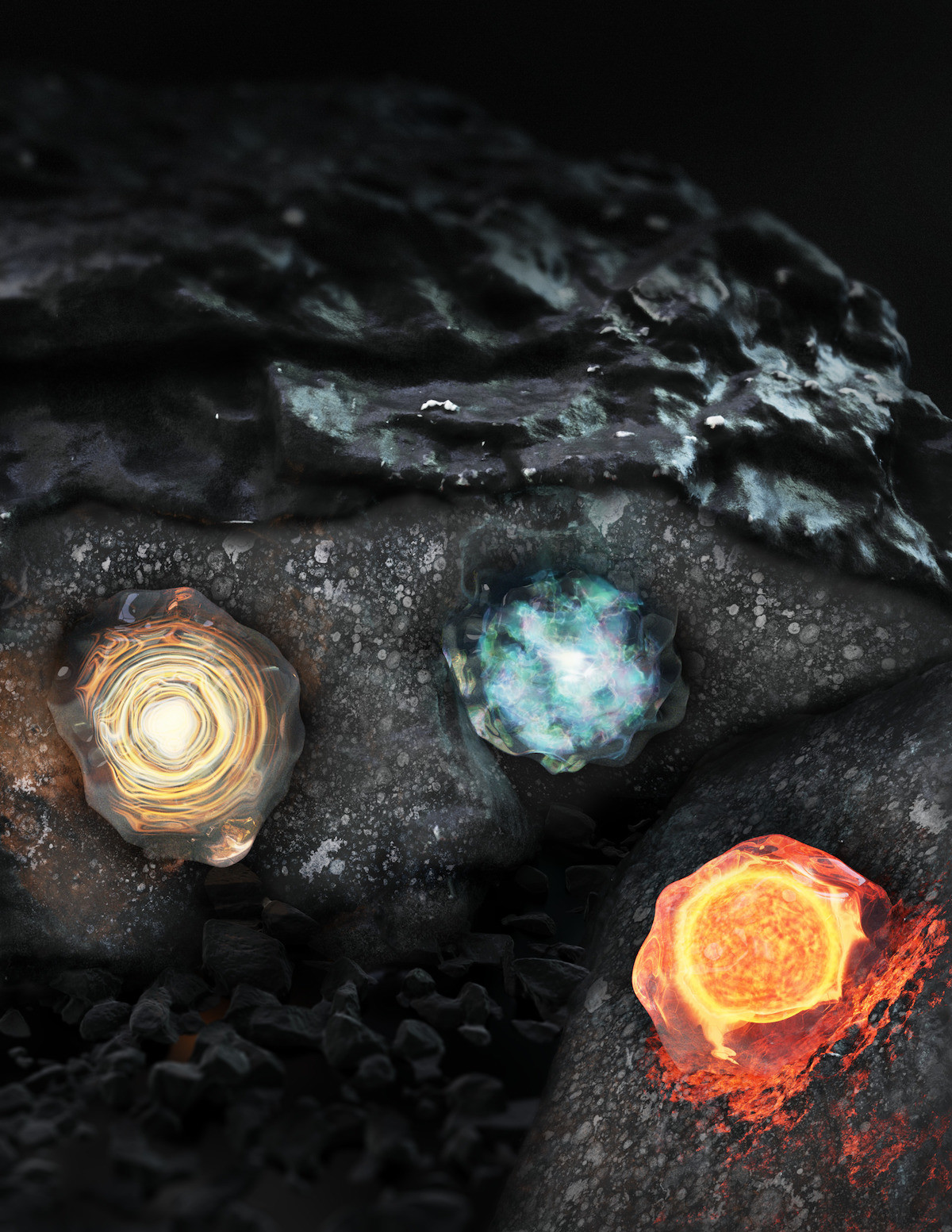Presolar grains inside the Allende meteorite
- Illustration of three types of presolar grains inside the Allende meteorite. The grains originated from (left to right) the protosolar system, a nebula and a red giant.
- Client
- Caltech
- Date
- January 2020
- Categories
- Journal Cover Illustration
Project Notes
This illustration was created for a cover submission to Nature Astronomy for Francois Tissot, professor of Geochemistry at Caltech who studies, in part, the formation of the early solar system. The research featured in this image was a study of calcium-aluminum rich inclusions (CAIs), substances found in meteorites that were the first solids to condense in the early solar system. Inside these inclusions are presolar grains, small crystals that actually predate our solar system. By measuring particular isotopes of noble gases in these grains, the researchers can determine where the material in the grain originated – in a red giant, a nebula, or in the protosolar system – and gain insight into the formation of our solar system.
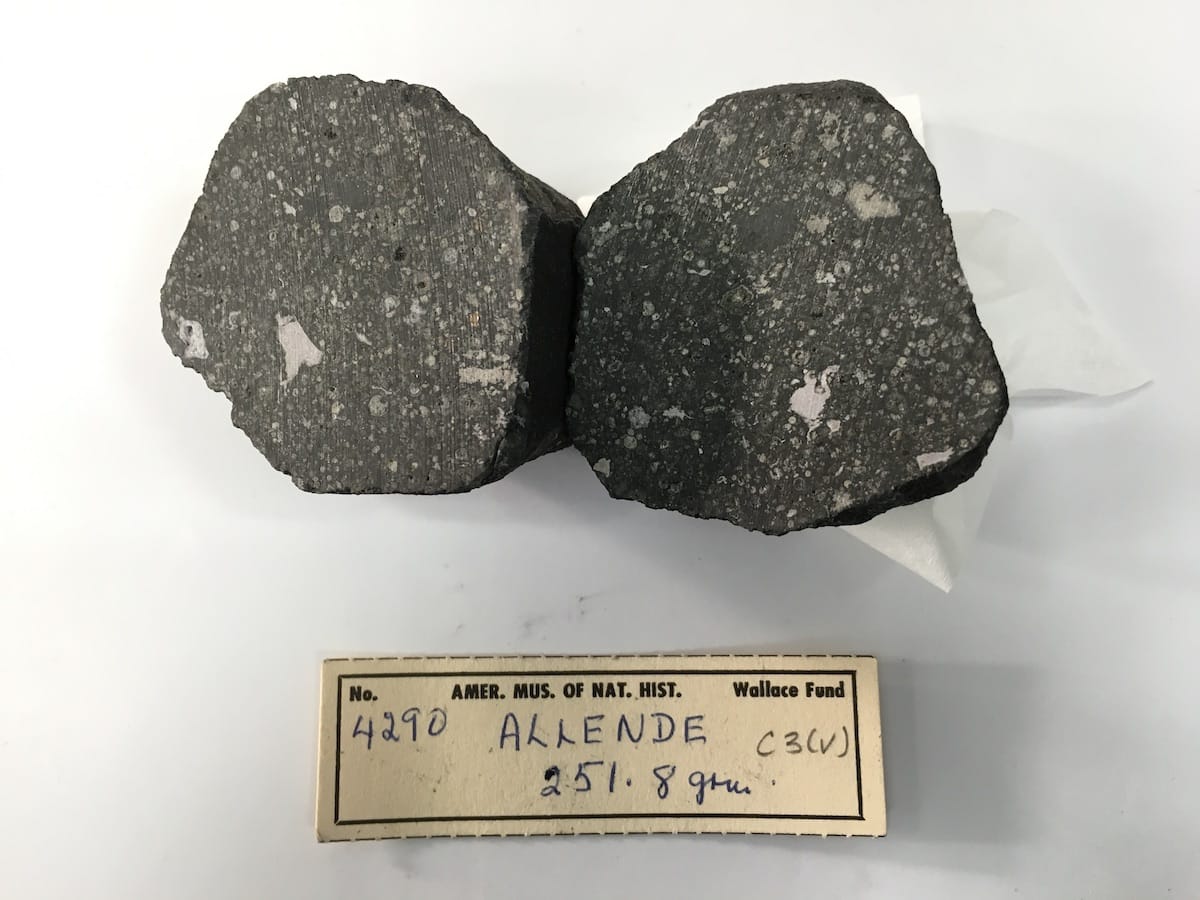
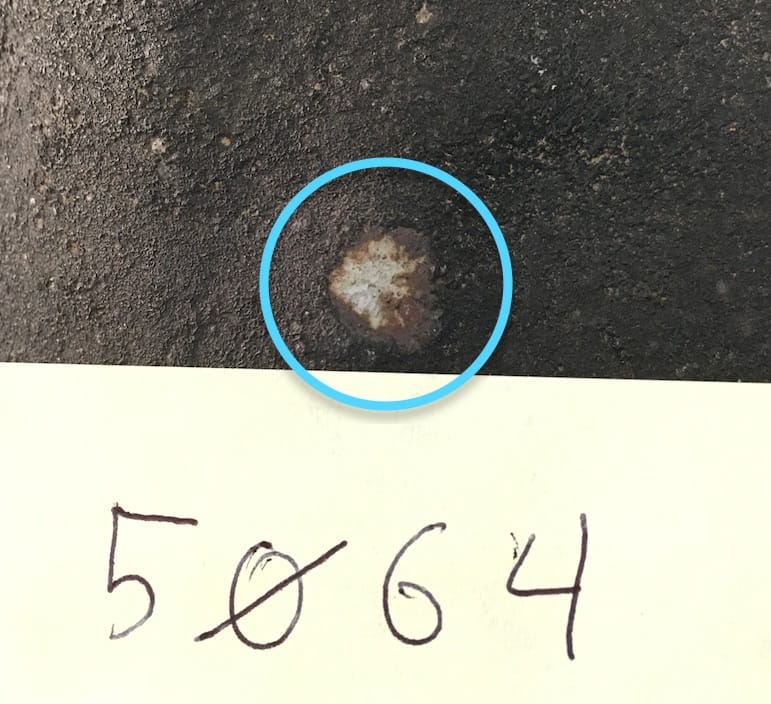
To highlight the different histories of these various presolar grains, we decided to create an image of transparent marble-like grains, each containing its own history of formation.

Here's an early test of these grains, showing the early solar system, a nebula, and a red giant star:

The basic idea was to show the meteorite split open, revealing these grains inside:
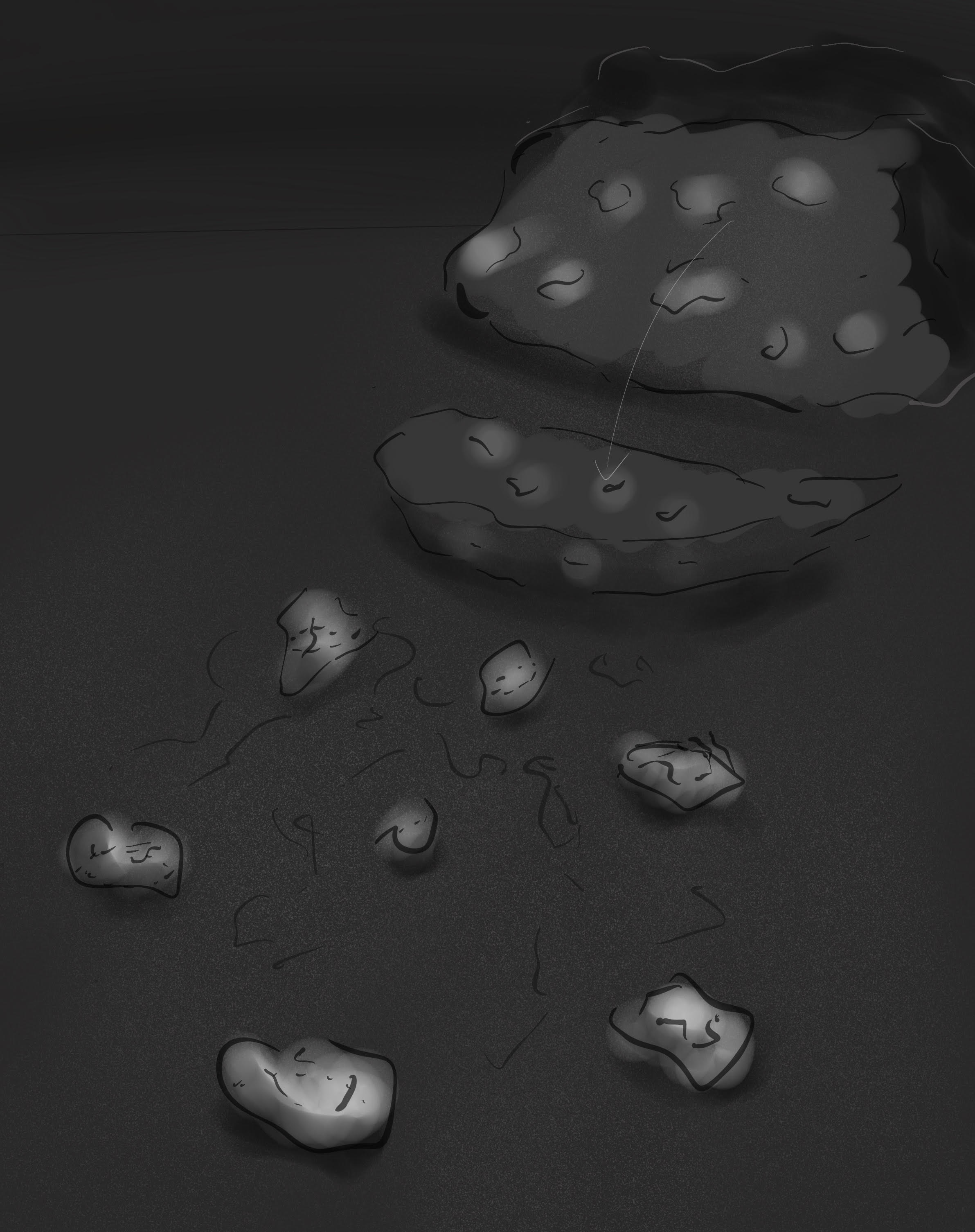
However, on an early test render I realized that such a wide view (leaving space for the journal title and additional text) would not highlight the grains properly (after all, they should be the focus of the illustration)...
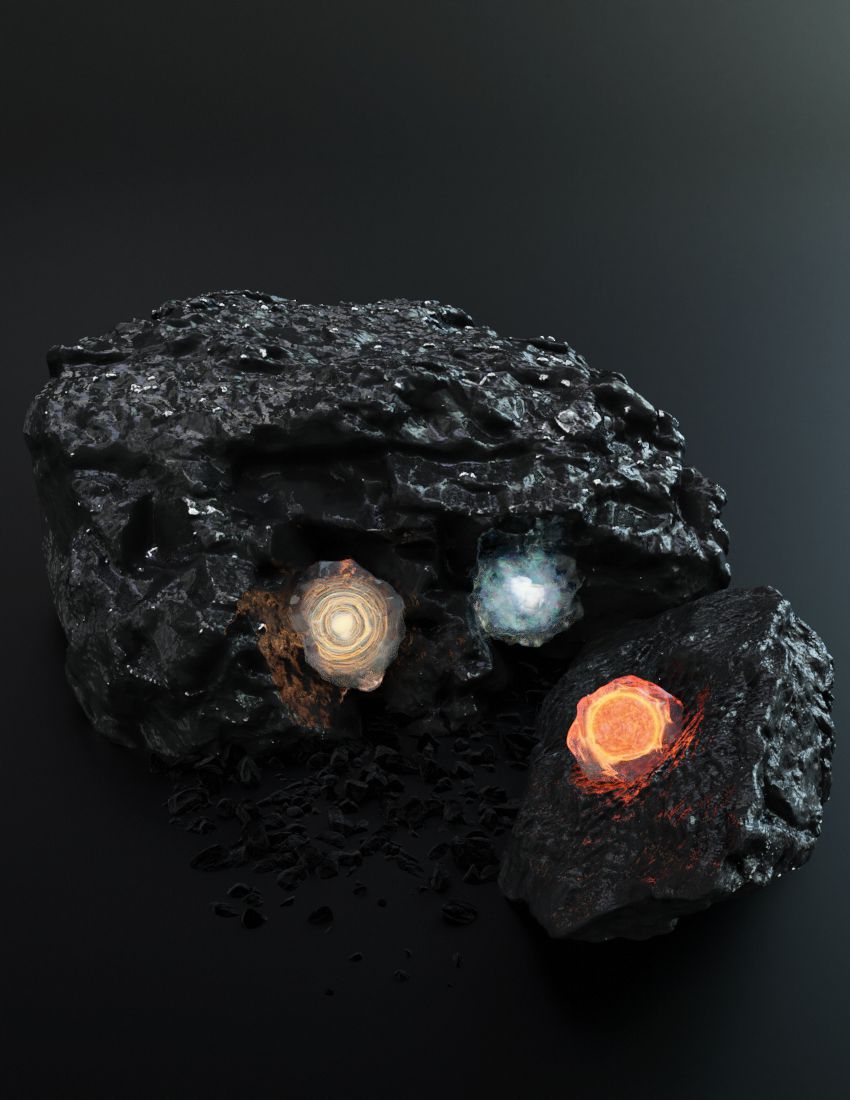
..so I decided for a closer composition, with three grains embedded in the split meteorite (and some space at the top and bottom left corner for titles):
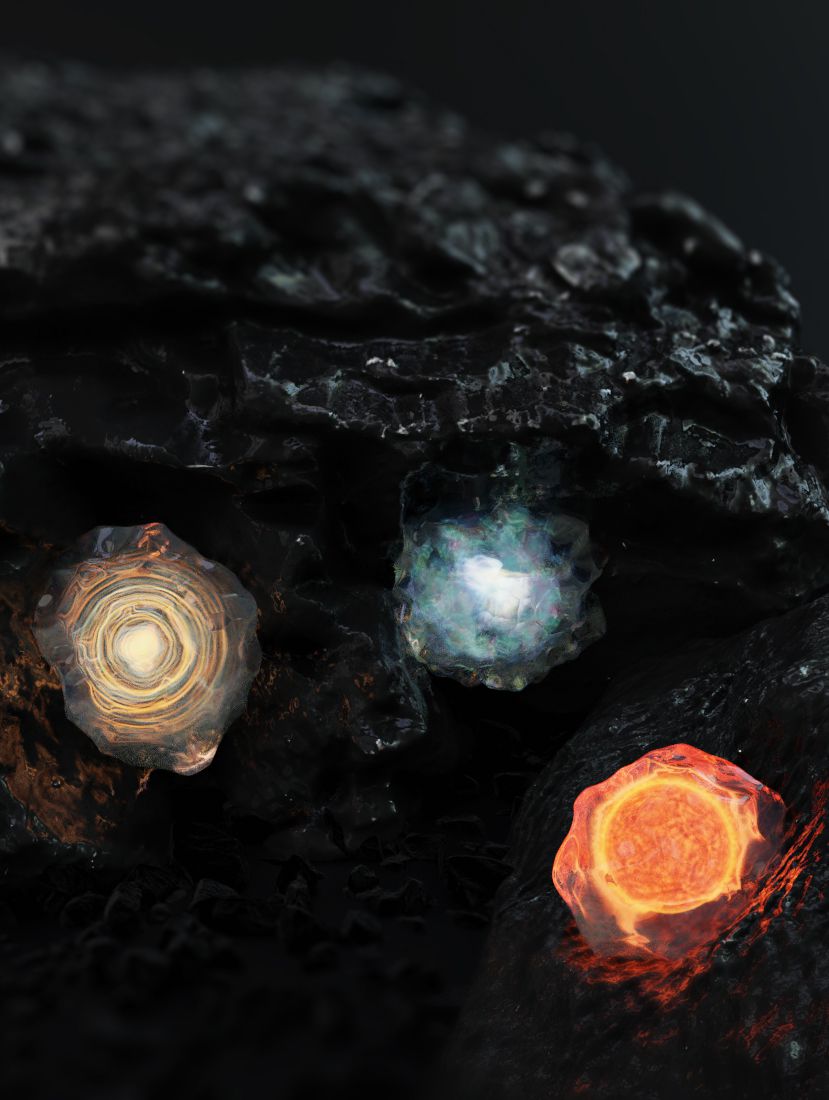
At this point the researchers pointed out that the exterior should be less glossy, more of a rough crust left over from baking in the atmosphere on entry:
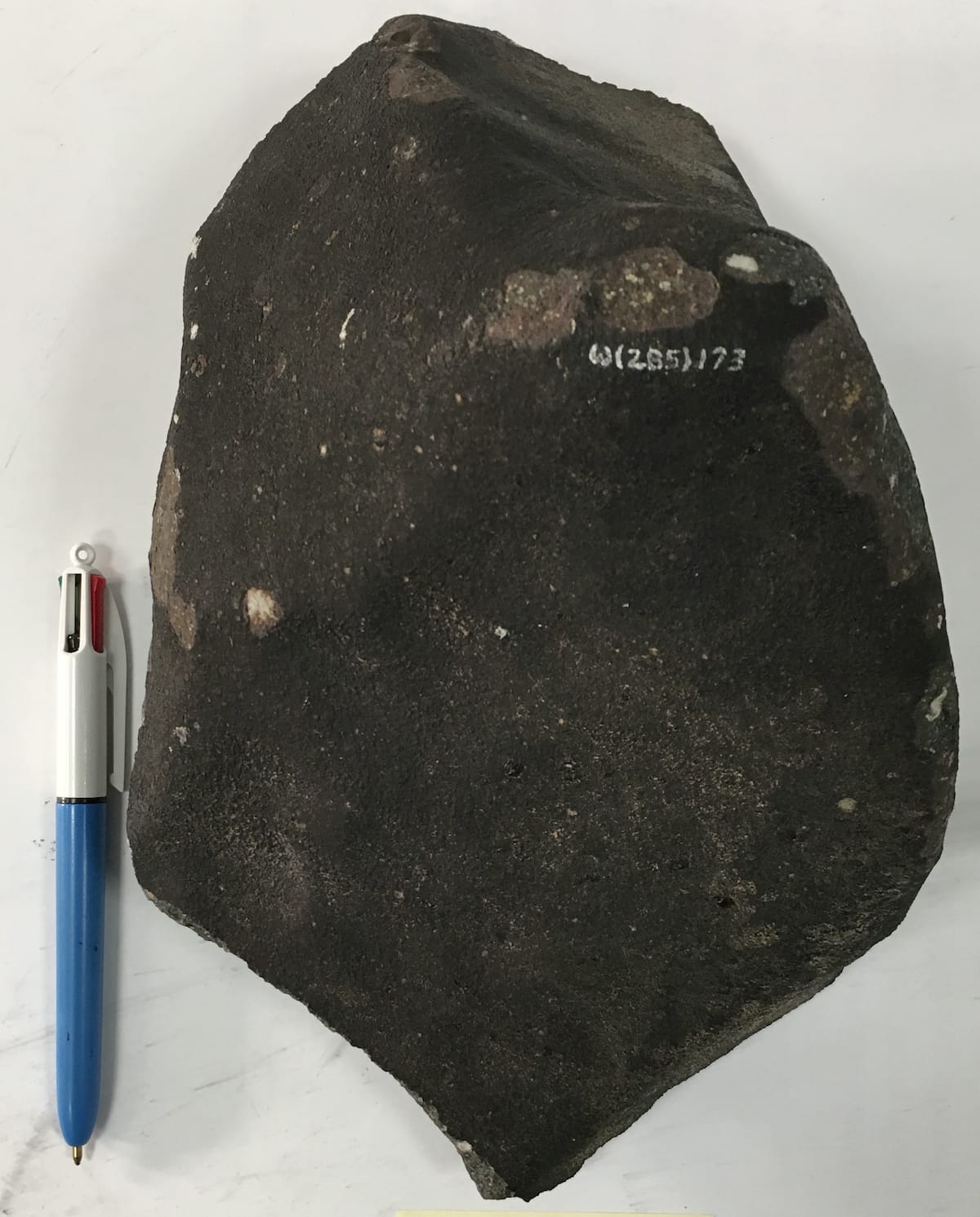
And that interior surface should also be lighter, with lots of CAIs visible:
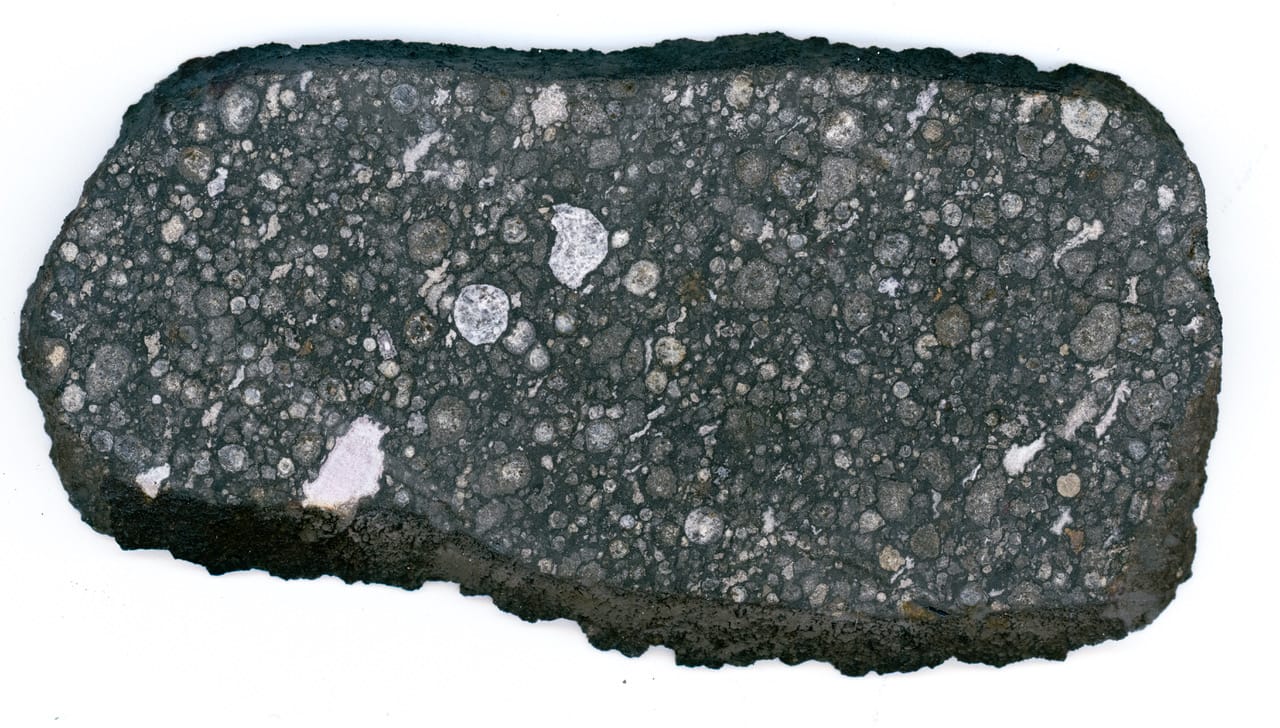
Here's the result of those changes, close to the final version...
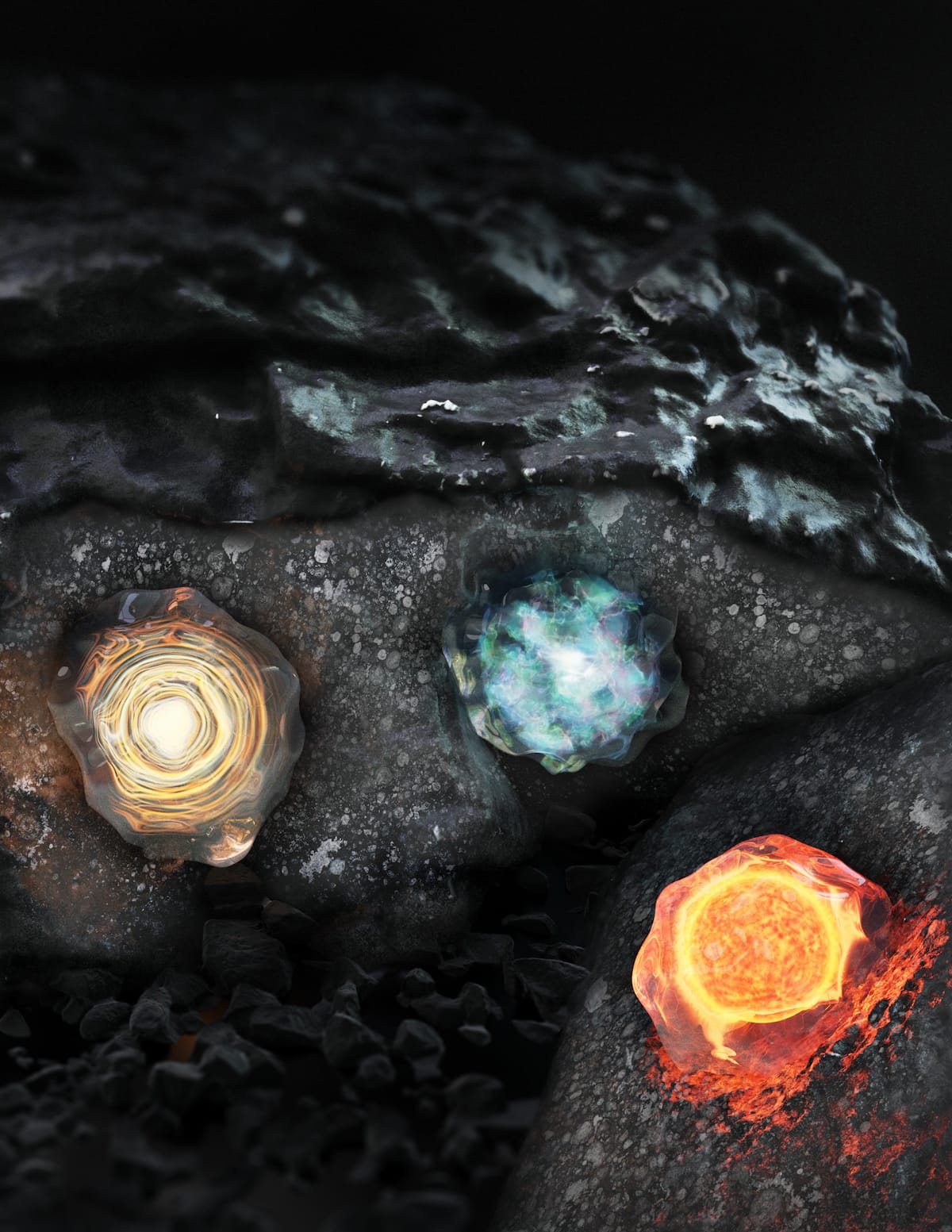
...and here's some close-ups of the new exterior and interior, showing a clear transition between "crust" and interior:
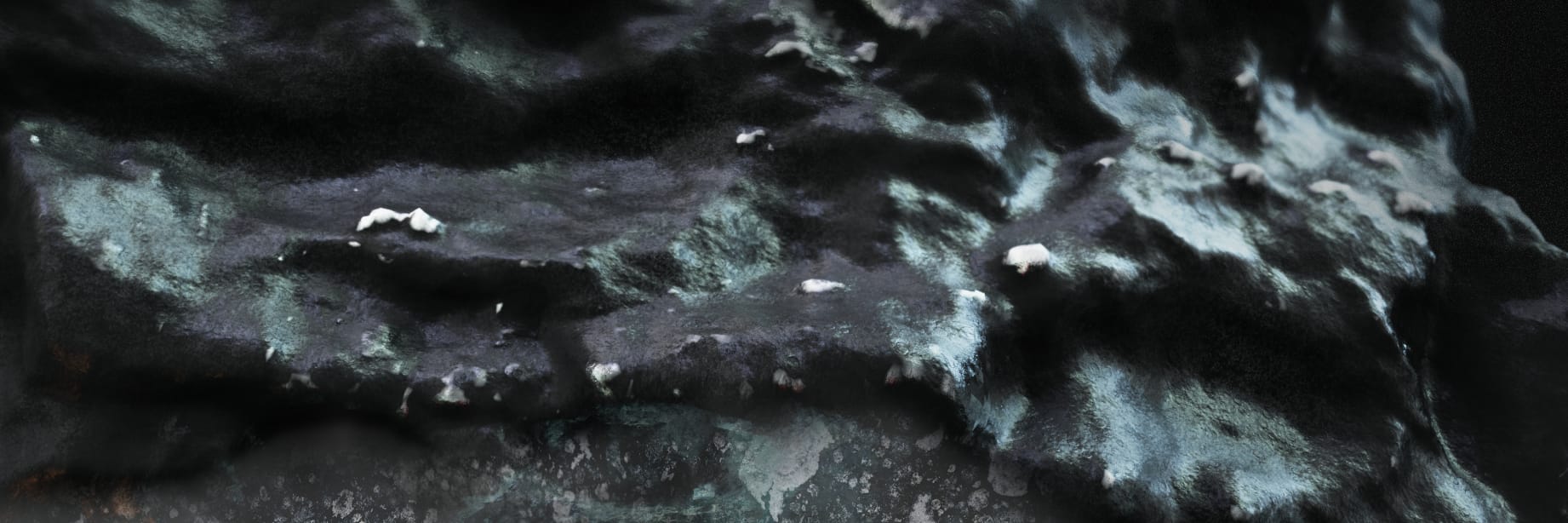
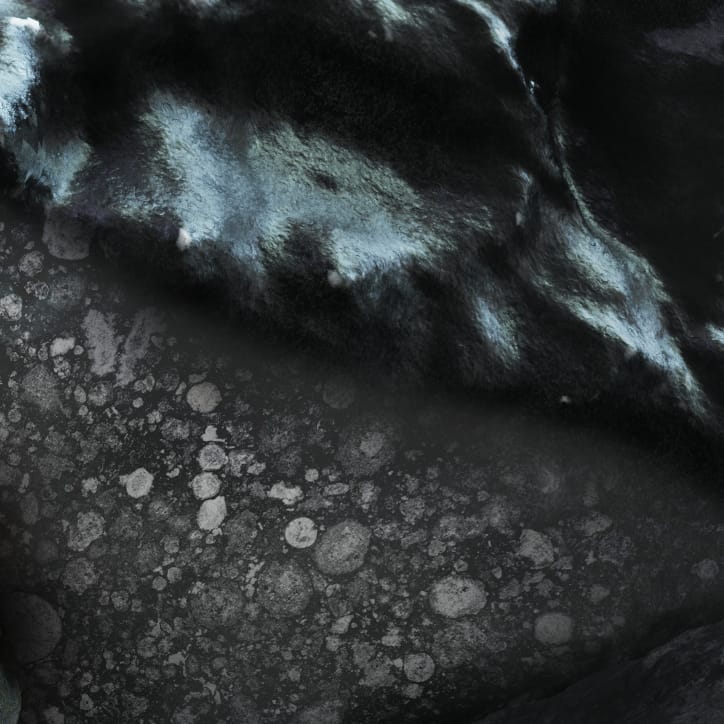
Finally, here's some close-ups of each grain:
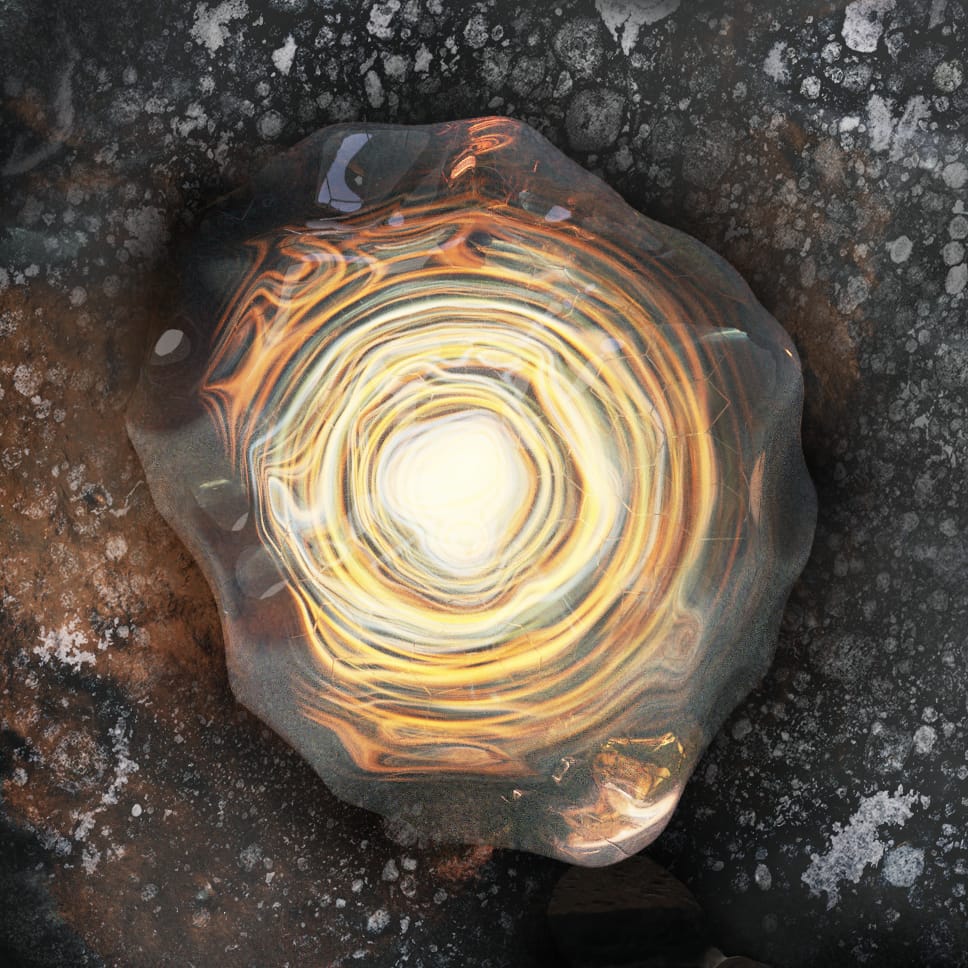
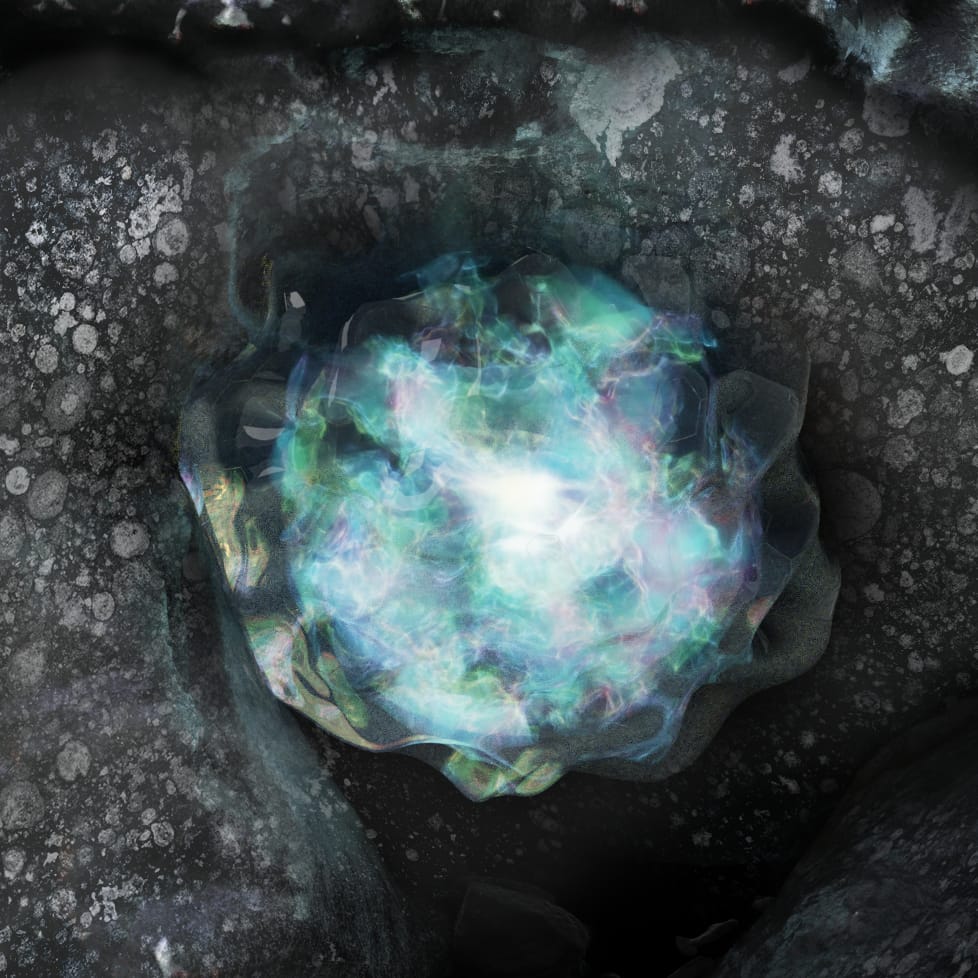
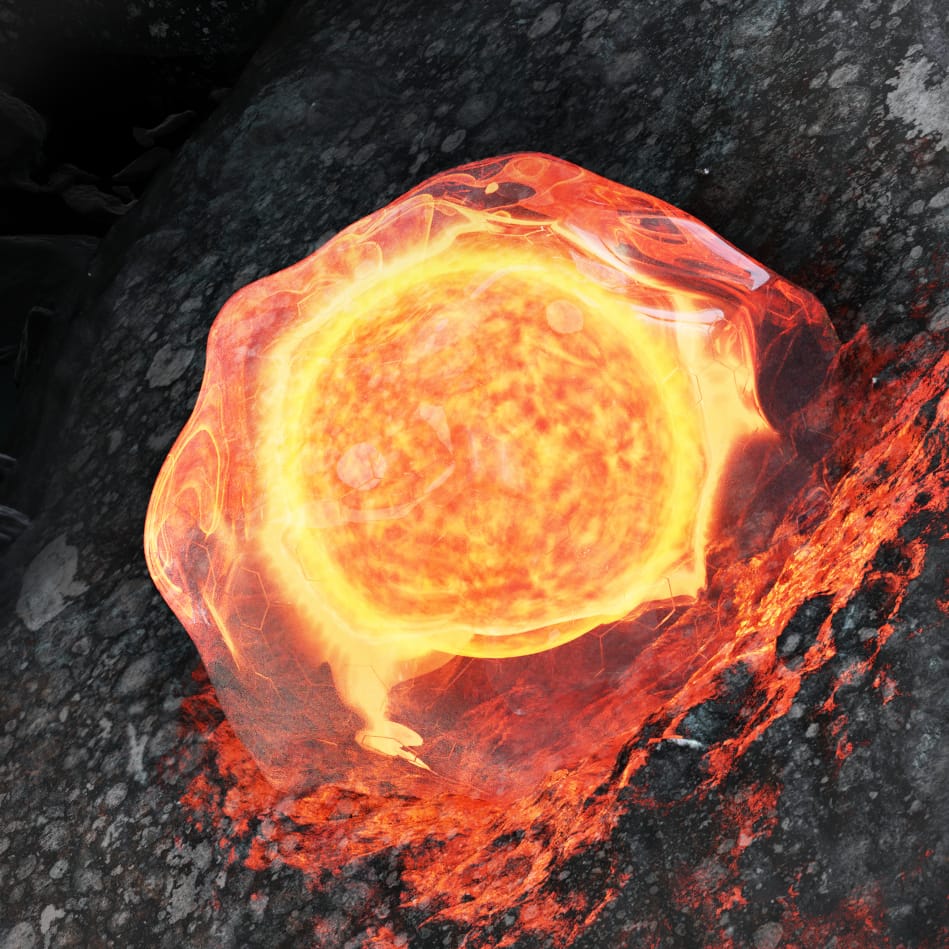
Unfortunately we didn't make the cover, which went to a very deserving review article on blazars (and a lovely cover designed by secondary school students from Padova, Italy.) Before submitting, I made a quick mockup of what the cover might look like if selected:

